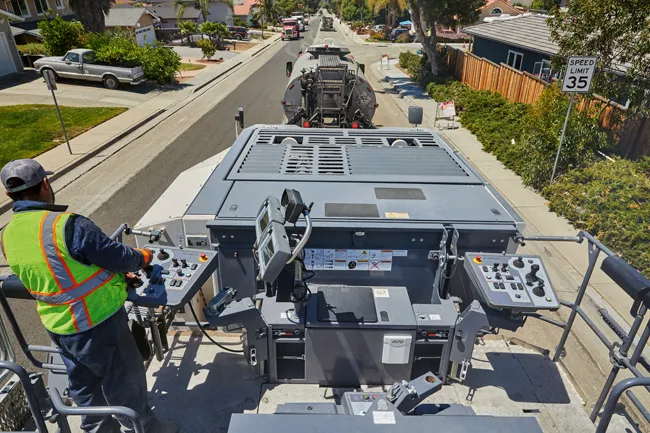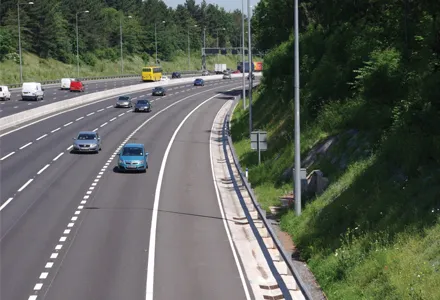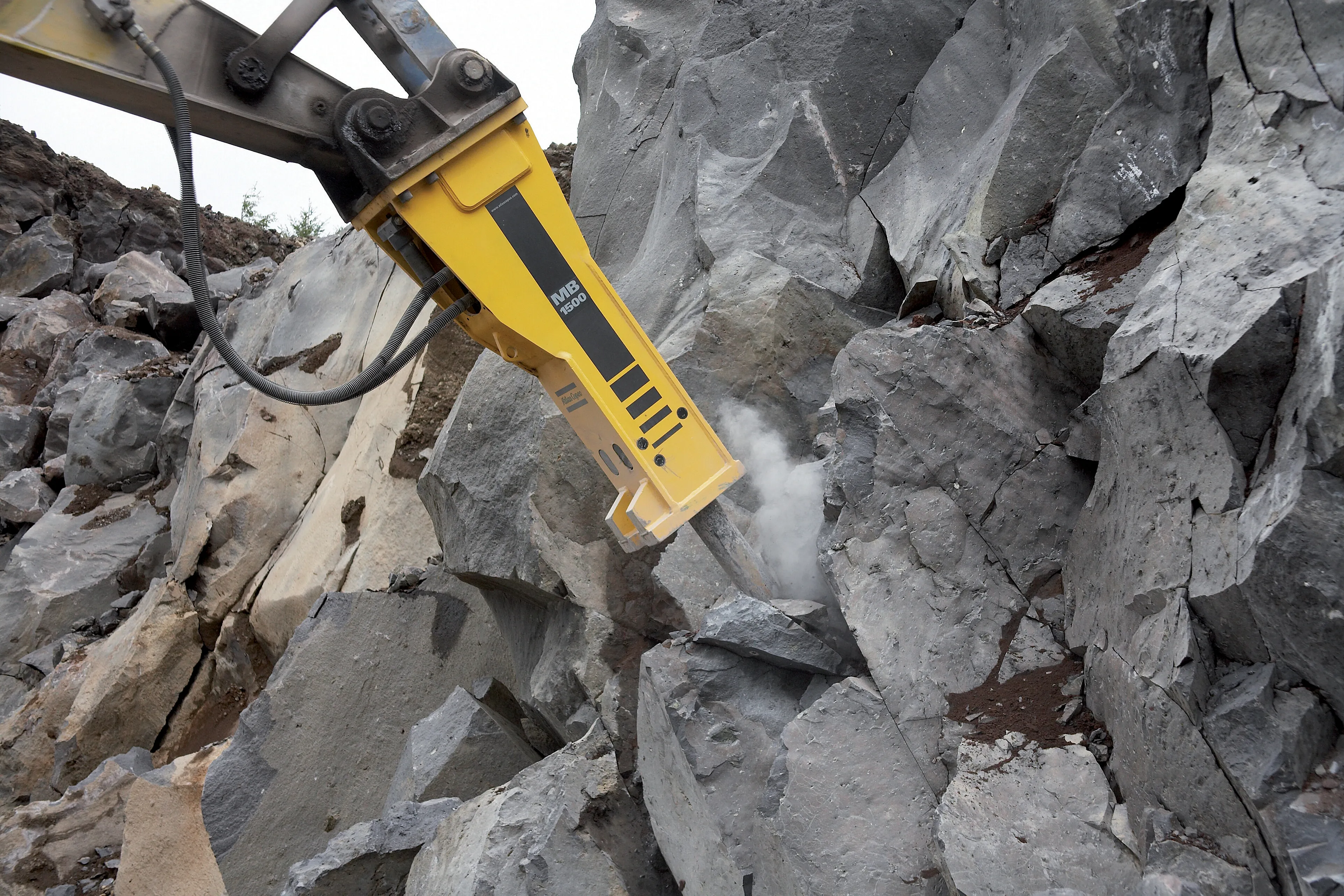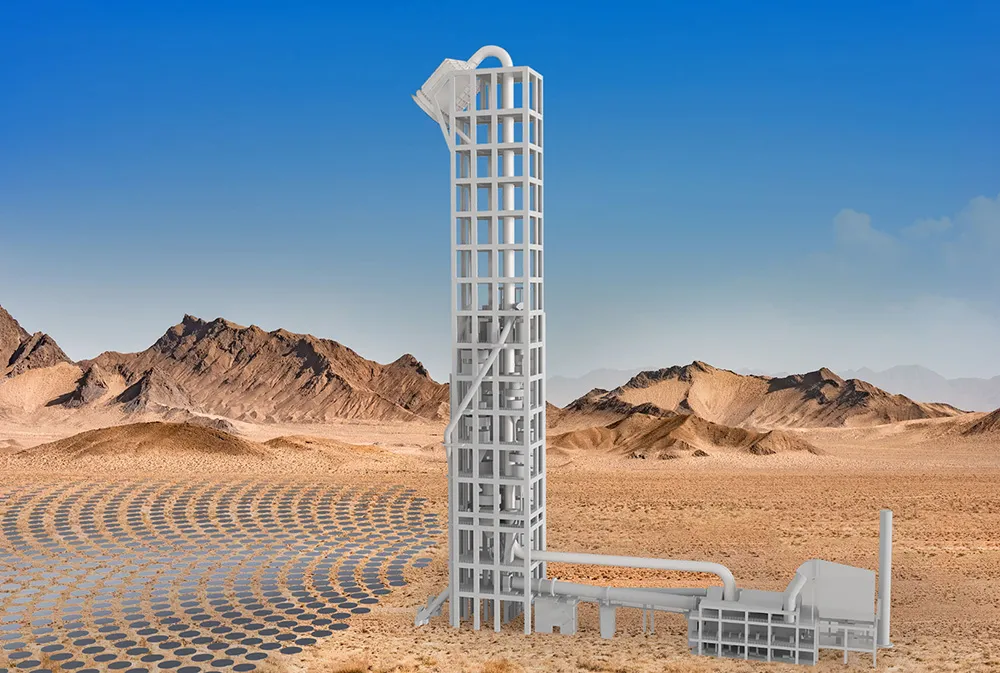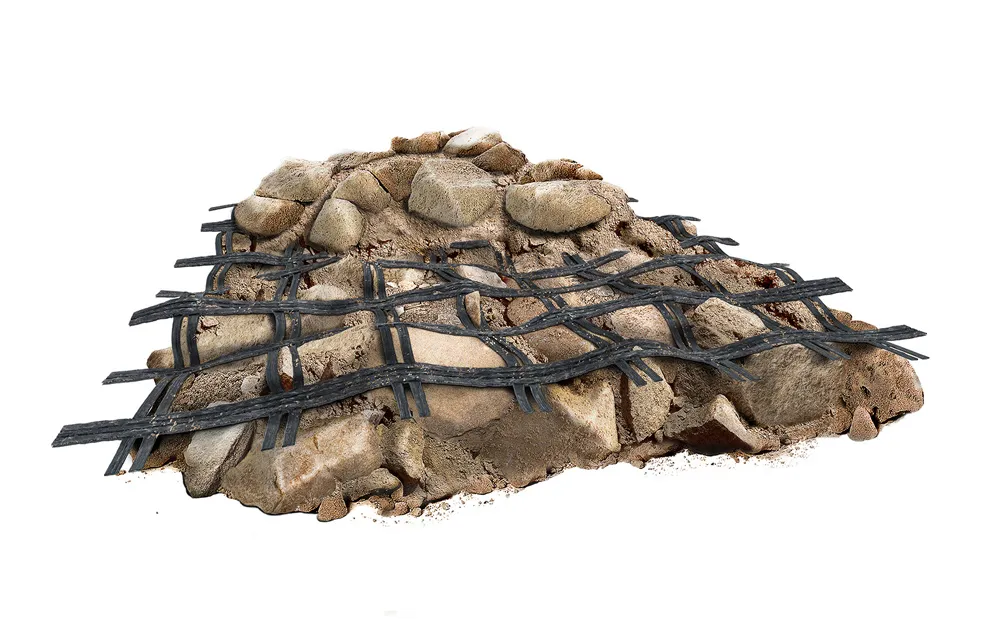
The yarns used in ecoLine are 100 % PET recycled material. By dispensing with primary raw materials, the firm says its makes a contribution to sustainable construction through resource conservation and CO2 emissions savings. Fortrac says that the ecoLine geogrids meet the same high-quality standards as the original product made from virgin fibres. Fortrac T eco is made from high-modulus polyester yarns and can withstand tensile forces of up to 1,600kN/m.
The firm claims that the high interaction flexibility ensures optimum ground interlocking effects, while the crossing points are said to be free of weak points, as there are no production-related molecular structural changes.
The geogrids can be used for applications such as the construction of steep slopes, retaining structures, bridging of sinkholes or also for embankments on piles. Due to the high design strength, lower and more cost-effective strengths can be selected. For embankment foundations for slope constructions, excavation can be avoided and area savings can be achieved by building over steep slopes.


